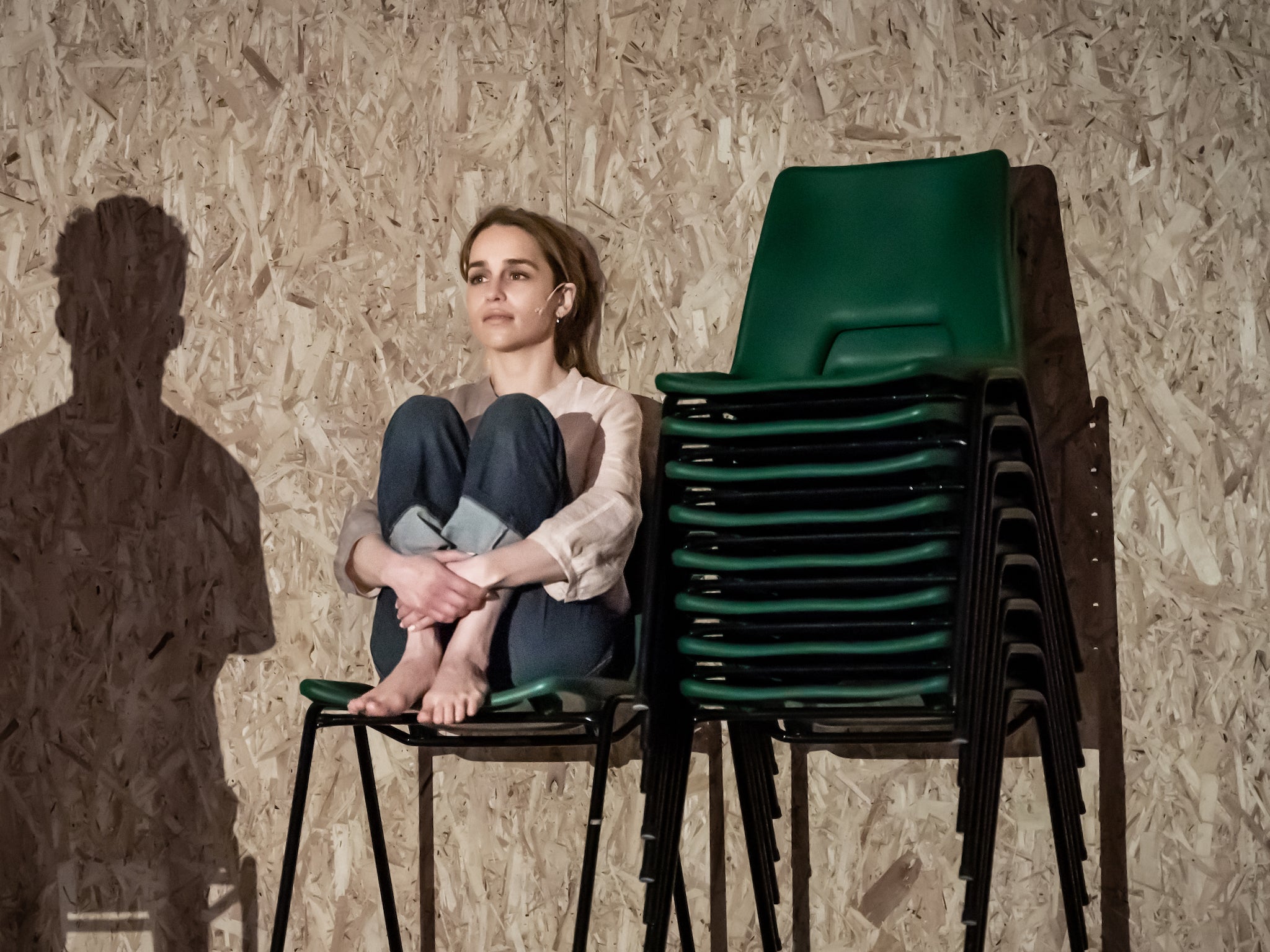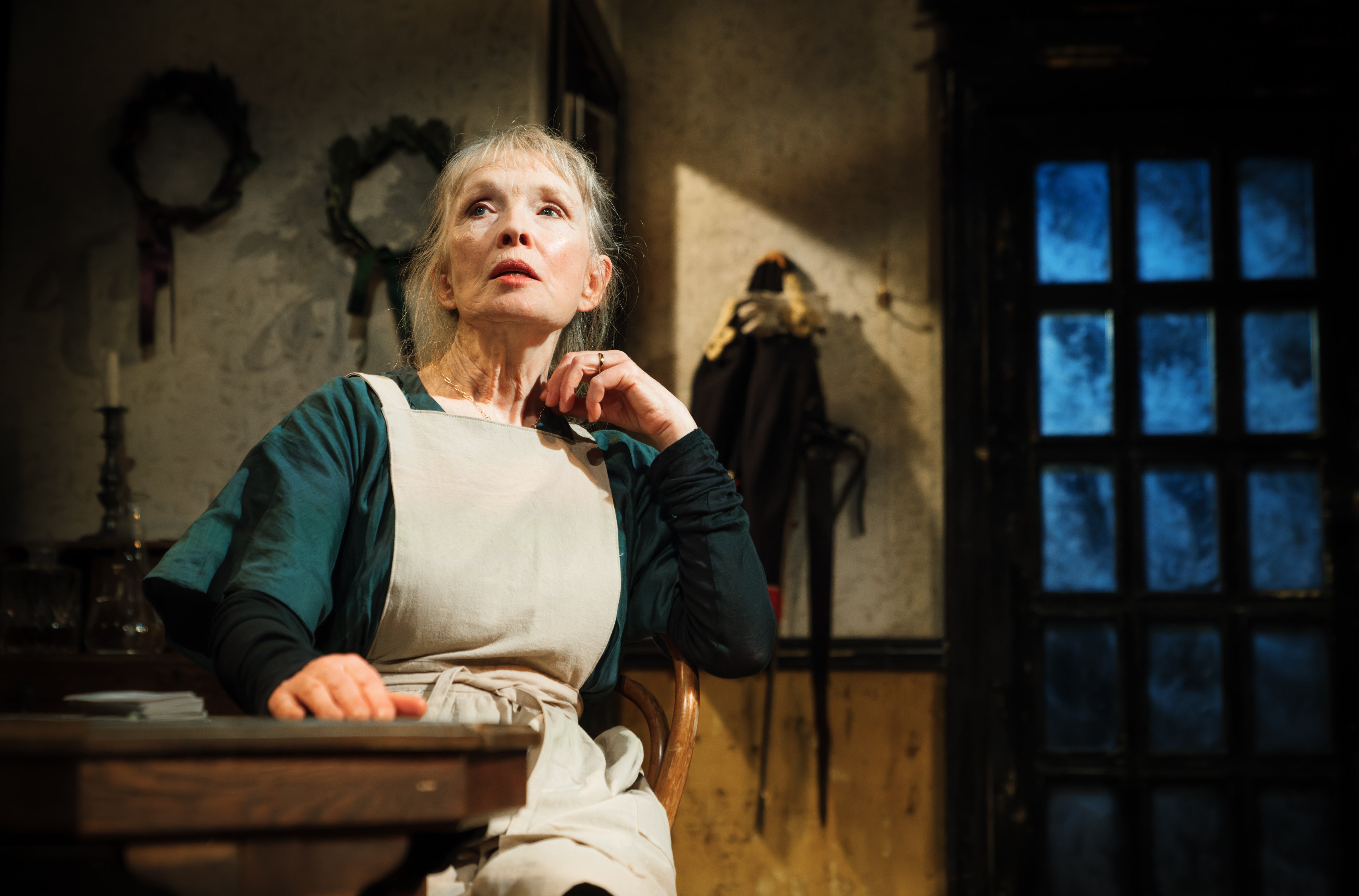The Week on Stage, from The Seagull to The Dance of Death
A guide to the week’s theatre

Everyone’s talking about Emilia Clarke’s West End debut in The Seagull this week.
Some loved it, some less so – our review falls on the less enthusiastic end of the spectrum. Elsewhere, we checked out The Dance of Death at the Arcola, starring real-life couple Lindsay Duncan and Hilton McRae.
Come back next week for our verdict on Patriots at the Almeida Theatre, the latest play from Chris Bush, and new National Theatre comedy Jack Absolute Flies Again.
The Seagull – Harold Pinter Theatre ★★☆☆☆
“Don’t you want to be a real actress, take risks?” someone asks Nina in Anya Reiss’s cool rewrite of The Seagull. The fact that Nina is played by Game of Thrones star Emilia Clarke, in her West End debut, adds an extra frisson. Clarke had already started playing the role in previews when theatres shut down in March 2020; she recently said that she feels she was “meant” to be in Jamie Lloyd’s production. It’s certainly been a long time coming.

So, was swapping fiery dragons for Chekhov’s metaphorical dead seagull worth it? I can definitely see why Clarke would be attracted to Reiss’s wry, thinky version. But this self-consciously languorous production is going to be divisive. I found it unrewarding: slow-burning, always undercutting itself, to little end.
Chekhov’s 1895 play is about two things that never go well together: love triangles and tortured artists. The action unfolds mostly as a set of pithy back-and-forths between the characters, who are all marinating in their own disappointments. Trigorin describes to Nina the burden of being a writer, unable to live normally without sifting everything for potential material. It’s “as if I’m eating my own life”, he says. “What am I cannibalising even the mundane things for?”
Indira Varma, one of Clarke’s co-stars in Game of Thrones, is the standout as vain actress Arkadina, bringing a sense of fun and elan that’s sometimes lacking elsewhere. Clarke’s role isn’t as box office as you may have been led to believe – it’s a minor key, unfussy performance. She’s often required to smile, gaze adoringly, or sit silently – but she conveys Nina’s earnest refusal to give up hope.
It’s the self-referential script that does for The Seagull in the end, though. Its knowingness about poking fun at theatre and writers ends up feeling smug and self-indulgent. “All speeches, no action,” Nina says of Konstantin’s play early on – it’s an arch self-awareness that dares you to take issue while guarding against having to do anything more. It seems to want to have its cake and eat it, but as Trigorin suggests, it just ends up eating itself.
Read the full review
The Dance of Death – Arcola Theatre ★★☆☆☆
August Strindberg’s The Dance of Death is less of a jive than a sombre waltz. Married couple Alice and Edgar are stuck inside their once-grand home on the eve of their 30th wedding anniversary. They cannot stand each other – and say as much. In Mehmet Ergen’s adaptation, real-life spouses Lindsay Duncan and Hilton McRae fill their shoes. Think Who’s Afraid of Virginia Woolf with added loathing – if that’s even possible.
From the offset, it’s clear there’s utter detestation between the pair. From Duncan in particular, that expression, that glare in her eye, is so unwavering that any glimmer of former affection is impossible to detect. “He loves you,” Alice’s visiting cousin Katrin (Emily Bruni) tells her. “He hates me more,” she replies. Really, it’s only the hate we see.

As the relationship between the couple collapses into dark, violent depths, the play itself is something of a slog, their world both dated and date-less. From the gloomy set and costume, we could be in the nondescript 19th or 20th centuries. Edgar is a military man, but we don’t know what wars he fought in. Combine with Rebecca Lenkiewicz’s distinctively modern script, which is heavy on the expletives and references to introverts and extroverts, and things get even murkier.
In the end, The Dance of Death mirrors the storm that’s raging outside the couple’s home. Things come to a head in a rage-filled flurry, then dissipate and settle as quickly as they started. What’s left is a little dull; the stakes never quite as high as they were surely intended to be.






Join our commenting forum
Join thought-provoking conversations, follow other Independent readers and see their replies
Comments